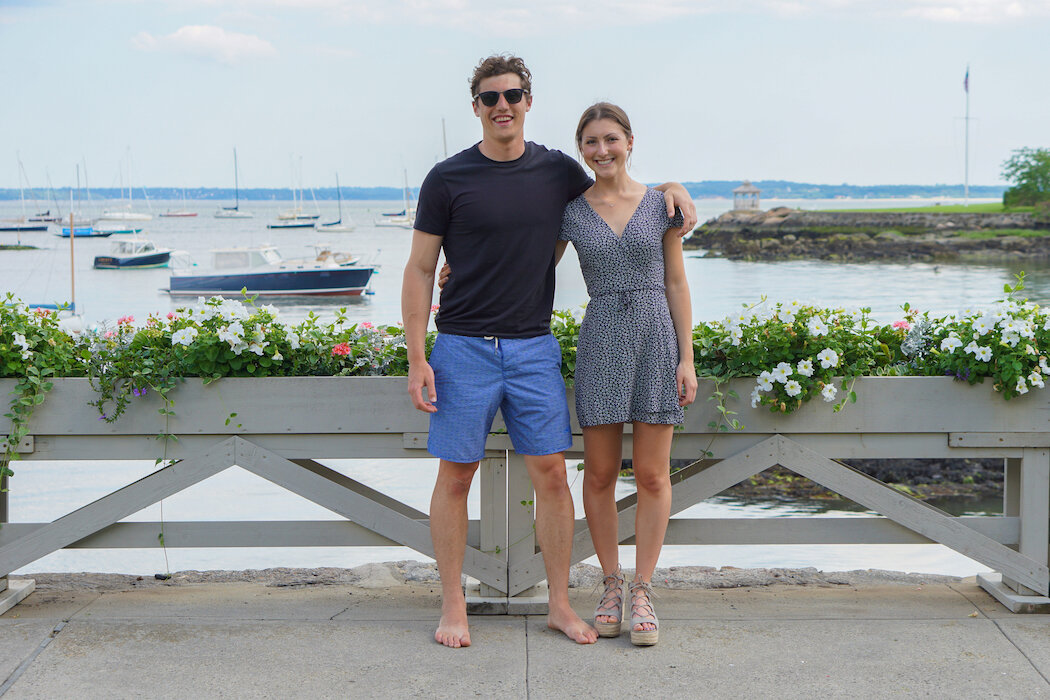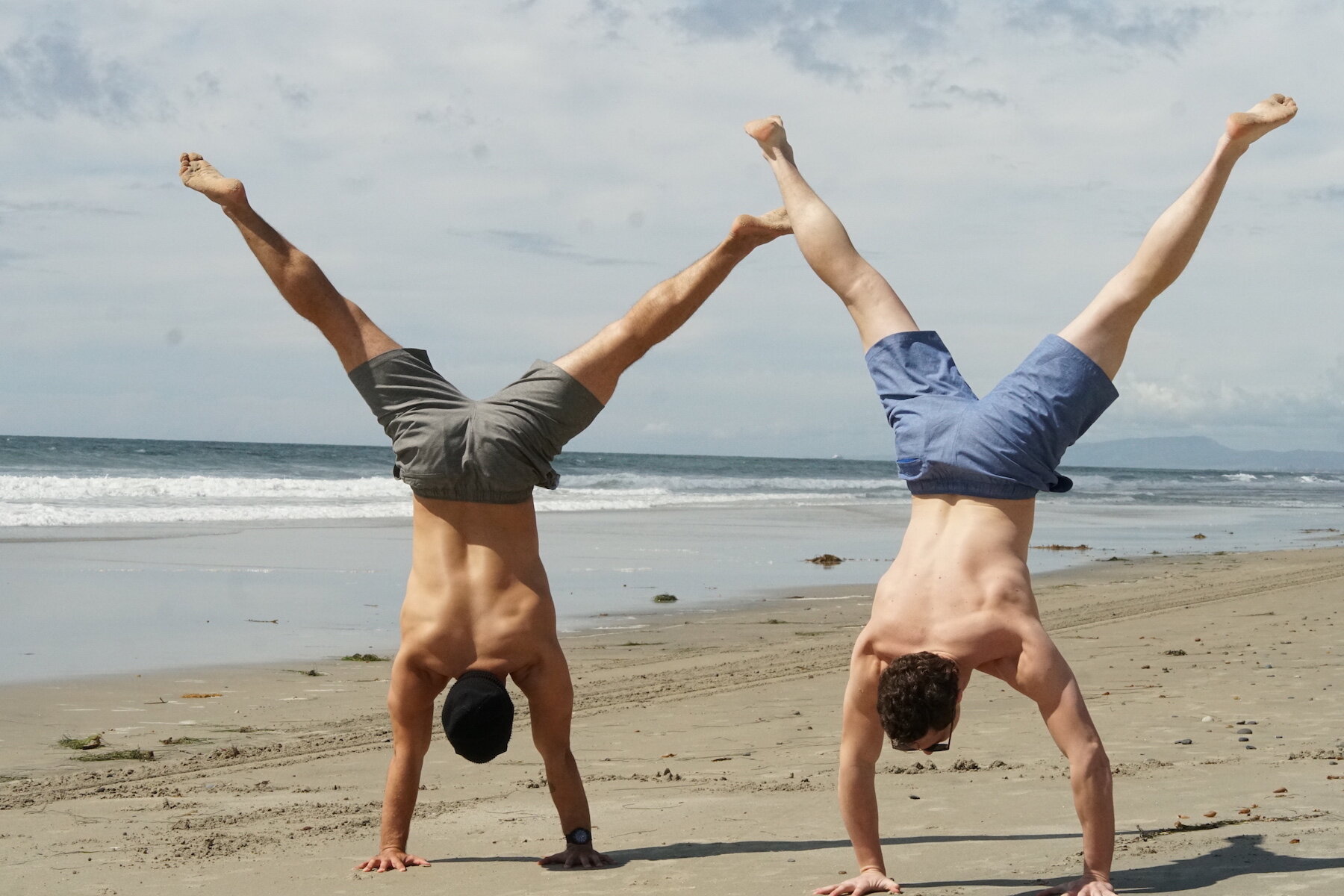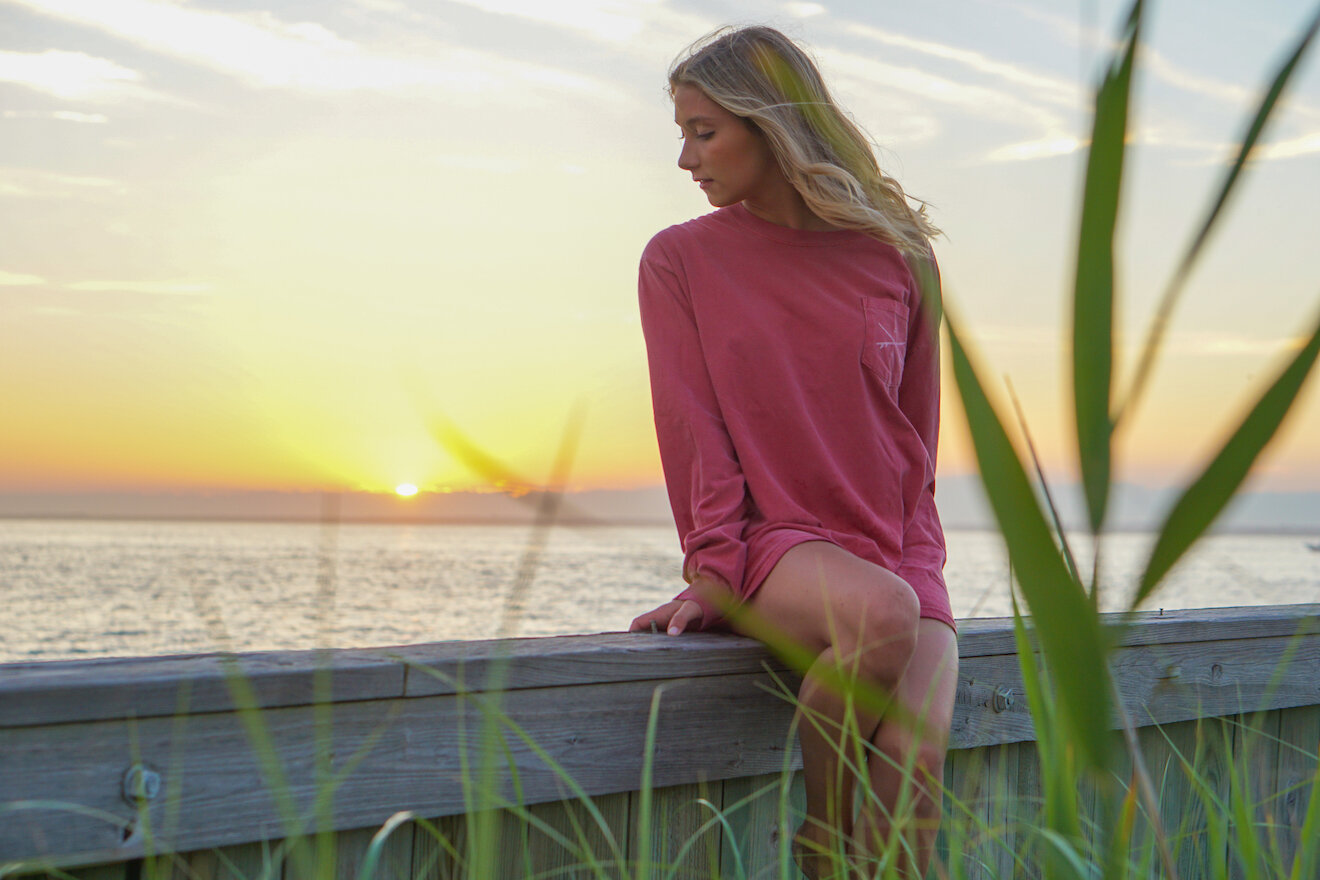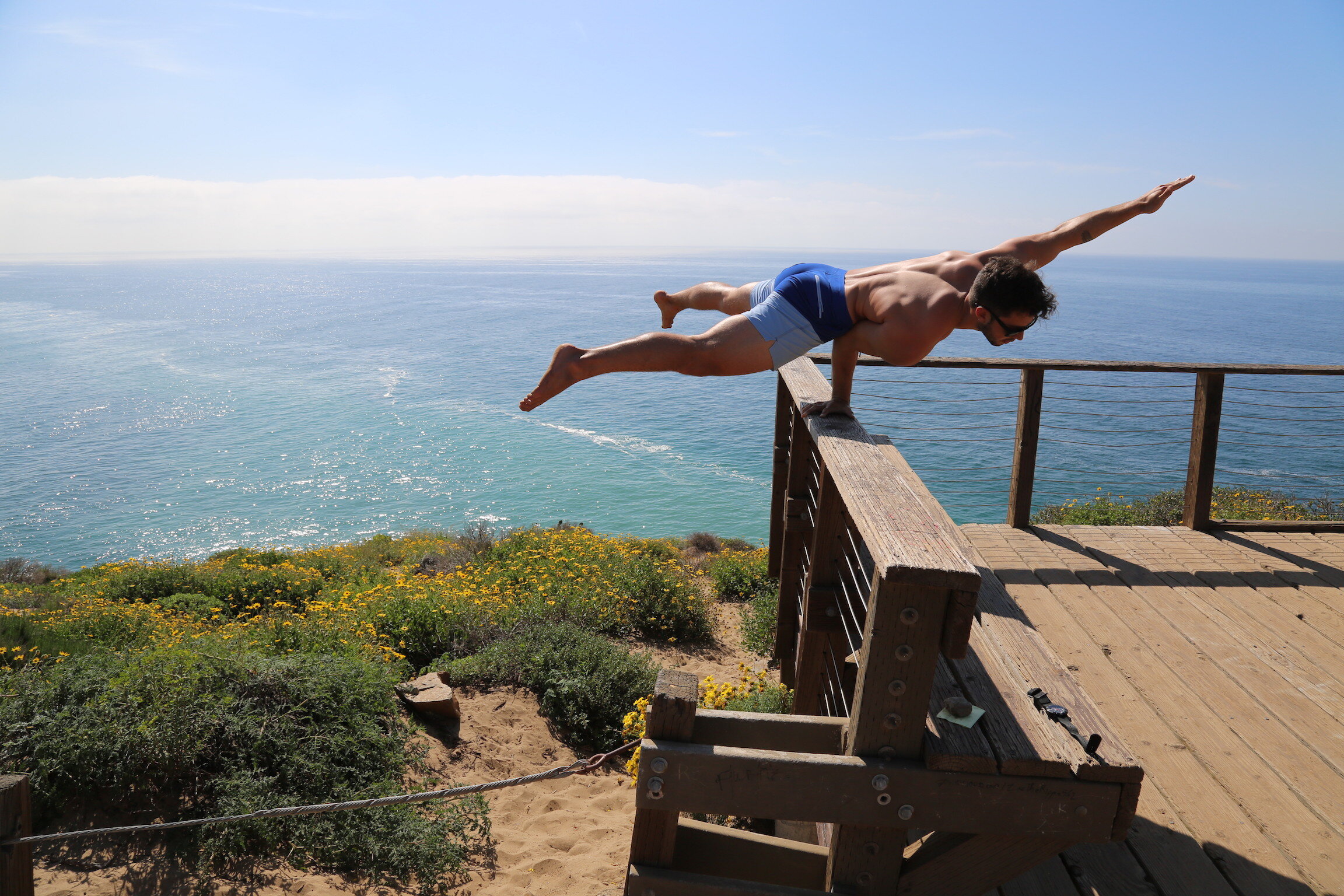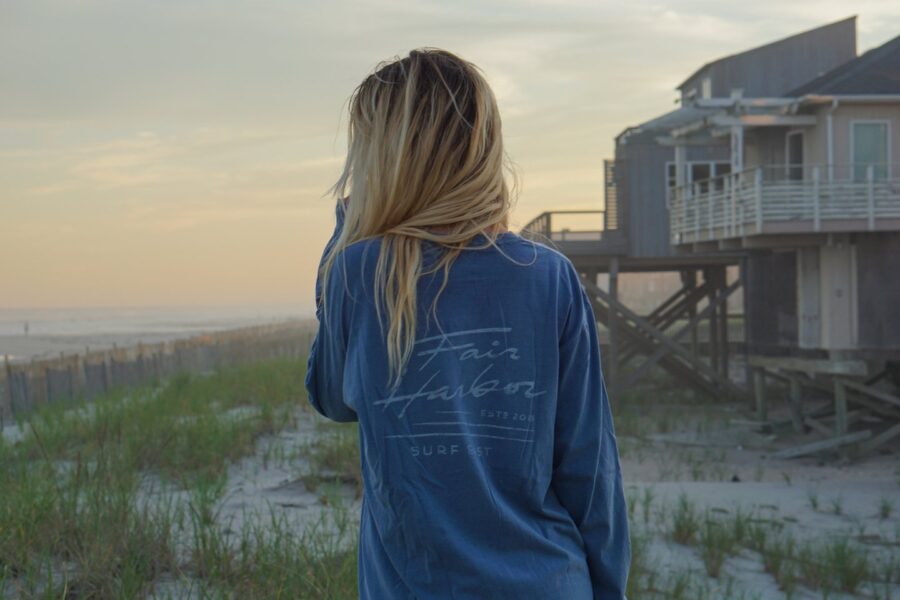
Seas The Day: Interview With Jake & Caroline Danehy, Founders Of Fair Harbor Clothing
Meet Jake & Caroline Danehy, Founders Of Fair Harbor
Siblings and co-founders Jake and Caroline Danehy founded Fair Harbor much earlier than most entrepreneurs. In high school and college respectively, Caroline and Jake turned their love for a slow and sustainable lifestyle that they enjoyed as children on the beaches of New York into a profitable business producing board shorts from recycled plastic. From pitching on Shark Tank to running a successful crowdfunding campaign during final exams, their story sheds light on how a business can be an effective solution to environmental problems, inspiring entrepreneurship even when it’s least expected.
The beach is clearly in your blood. Born just a block from the ocean in Fair Harbor, NY, tell us about your inspiration for launching the brand. Why board shorts?
Our childhood summers spent in Fair Harbor on Fire Island, NY, gave us the appreciation for clean beaches and minimalistic living; the timeless island doesn’t have any cars and truly embodies summer simplicity. During Jake’s sophomore year at Colgate University, he was studying Geography and, more specifically, ocean plastic. As Jake learned more about the waste in our oceans, he became really frustrated with this issue and started to think about new, innovative ways to transform plastic waste and the way people view it. As we brainstormed, we found polyester that is directly made from recycled plastic bottles. During this process, we kept thinking back to our summer days spent in Fair Harbor and wanted to connect people with a clean living lifestyle. Board shorts were a way to start transforming ocean plastic into durable, stylish clothing while simultaneously connecting people back with the ocean.
“Board shorts were a way to start transforming ocean plastic into durable, stylish clothing while simultaneously connecting people back with the ocean.”
How has waste impacted our oceans and what was your own experience witnessing the impact on beaches around the world?
Plastics were first incorporated into society in the early 1900s, and then with the coming of WWII, plastic really started to evolve. It’s an amazing material because it is pliable, cheap and durable, allowing us to create billions of inexpensive consumer goods. The problem that we have come to know in our society, however, is that plastic is extremely easy and inexpensive to produce and therefore easy and mindless to discard. With all of this single use plastic waste, when it is not discarded correctly and washes into our waterways, it creates tons of problems for sea life, and ultimately our health. Plastic doesn’t biodegrade, but rather breaks down into smaller and smaller pieces, which are referred to as micro-plastics. These micro-plastics act like sponges for toxins and are ingested by wildlife. It is very easy to disregard plastic after one use because the majority of people do not see this impact that it has.
“Our goal is to help change the way people see plastic waste.”
From New York to Australia, we have both witnessed an immense amount of garbage floating in our waters and it’s incredibly disheartening. However, seeing the waste is even more motivation to continue working on Fair Harbor. Our goal is to help change the way people see plastic waste.
Clearly passionate about leveraging your business to reduce environmental degradation, you built a model with broad appeal. What was it like to pitch on Shark Tank and run a crowdfunding campaign to launch the business?
Fair Harbor has been such a great learning experience and we are constantly looking to improve our pitches and campaigns. Colgate University has been instrumental in helping us launch the company. Through their entrepreneurship incubator program, we have received incredible help from their mentors when preparing for Shark Tank competition and crowdfunding campaigns.
When we pitched at the Shark Tank, it was extremely nerve racking. I was a junior at Colgate and Caroline was a senior in high school at the time. We must have practiced that pitch thousands of times and it still scared the hell out of us to get up there in front of thousands of people and the prestigious panel. As we moved forward, we continued to evolve and refine our messaging. We launched our Kickstarter in December of 2015 when Caroline and I both were knee-deep in preparing for final exams. But, we had to launch it then in order to pay for our production, since our season is short and we were using custom fabrics. It was a crazy month, but we were able to beat our goal by 225% in a short period of time thanks to all of our friends, family and early supporters.
Tell us more about the process moving from ideation through production? Was it difficult to innovate on existing textiles to identify one made exclusively from recycled plastic?
When we first started, we did a lot of research and made several samples with different fabrics to make sure that we were satisfied with our product prior to production. We are still making changes to our designs and fabrics to improve all of our styles. It is important to us that even though our polyester is made exclusively from recycled plastic, we don’t sacrifice on quality or design. People are constantly amazed at how soft and quick-drying our shorts are!
“It is important to us that even though our polyester is made exclusively from recycled plastic, we don’t sacrifice on quality or design.”
As a young entrepreneur with a very young business, what does a day in the life look like? How is entrepreneurship different from what you expected?
Its funny, I (Jake) never really said, “I want to be an entrepreneur.” I found a problem that I was angry about and a passion for the environment that drove me. I think the biggest difference from a traditional job is that each and every day is completely different. I am always moving and doing different things. I try and wake up between 5:30am and 5:50am every day to get started. I go surfing once or twice a week, and if there aren’t any waves I get in a work out before I head to the office. That helps me stay sane and calm during the day. I have to stay up pretty late some nights in order to coordinate with our mills and factories in Asia. Overall, it is the most exciting thing I have ever done in my life.
Fair Harbor has been such an incredible learning experience for us. Starting the business from the ground up has really forced us to understand every part of it; each day poses new challenges to overcome. We’re at a really exciting time right now and looking forward to continuing to expand Fair Harbor as a sustainable lifestyle brand.
Instagram
Facebook
Twitter
About The Author
Kassia Binkowski is a Contributing Editor at The Good Trade and the Founder of One Thousand Design. She grew up in Madison, WI and traveled her way around the world to Boulder, CO which she now calls home. Nestled against the Rocky Mountains, Kassia supports innovative organizations from Colorado to Kathmandu tell their stories of social change through writing, photography, and design. Kassia is an eternal optimist and forever a backroad wanderer.
